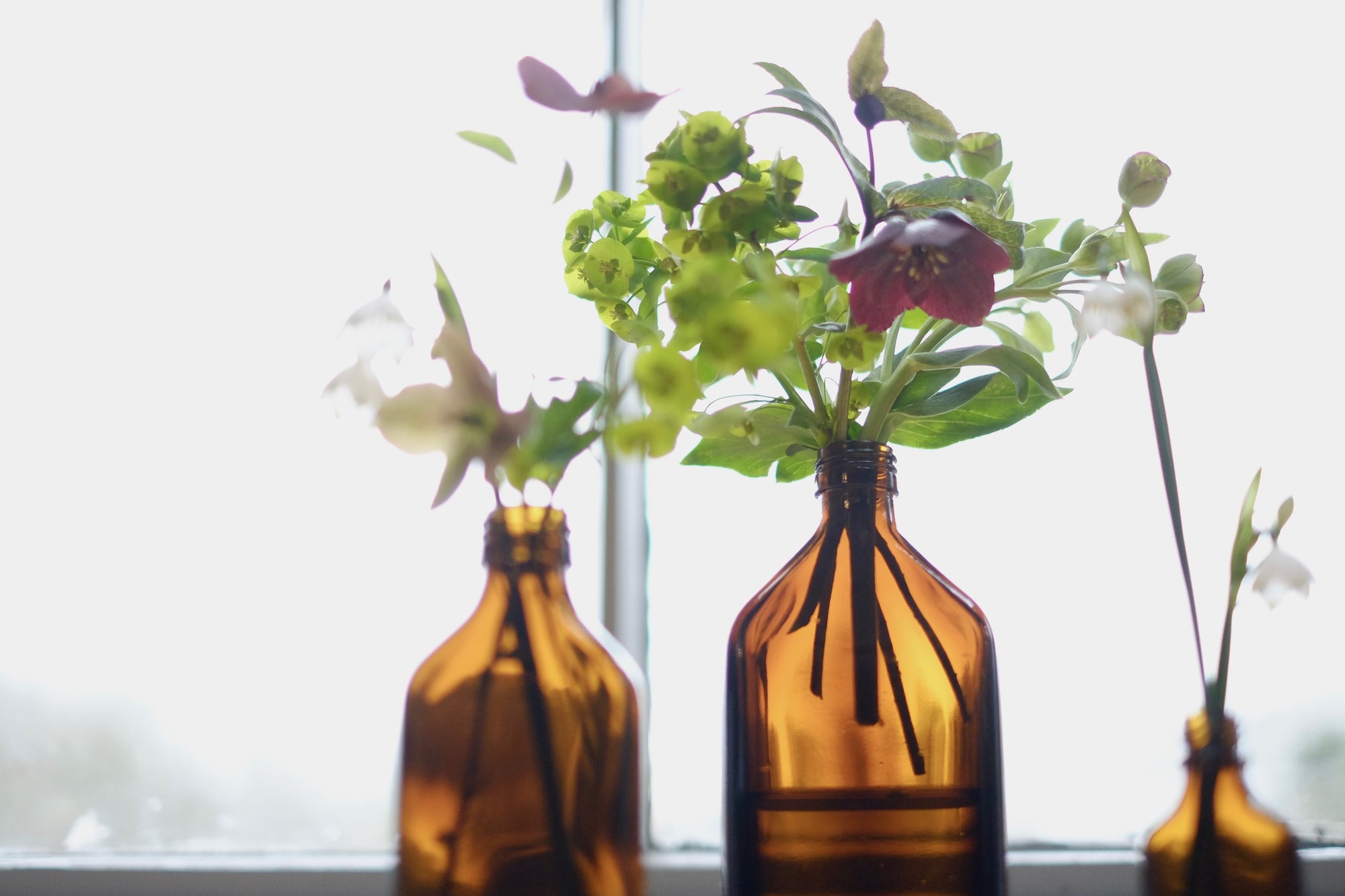This week La-Eva founder Louisa Canham joined an online panel discussion hosted by the Sustainability Lifestyle Awards in collaboration with Anthropologie. Let's Talk Sustainability was led by Rachel Fortune of the SLAs, which are the first awards to verify and celebrate brands that hold style and substance in equal measure. The SLAs put the spotlight on conscientious creators driving positive change within their industries through their dedication to making beautiful lifestyle products with positive social and environmental impacts.
On Tuesday Louisa joined Rachel, Gill McCulloch from Anthropologie, Hannah Beaumont of Beaumont Organic and Louise Jackson of The Jacksons, in talking about their personal and brand perspectives on sustainability, and reflecting on what the journey towards a more sustainable way of living ultimately requires.

Hannah Beaumont, Founder of Beaumont Organic
- What does sustainability mean to you?
It means being conscious and thoughtful in everything you do to ensure you are making decisions that will not be detrimental to the world we live in.
- What are your future plans for traceability in your supply chain? How do you select your fabric and fibre that is used within the production process?
Our future vision is 100% transparency for our customers so they can see online the full product cycle with ease. At the moment we buy GOTS certified fabric to ensure clear visibility of the supply chain.
- The Future of Consumption after COVID-19: How does this landscape look for you? Do you think as consumers we will be more mindful of our purchases/needs/wants or will we want to ‘let loose’ to make up for the recent restrictions?
Yes, we have already seen changes in the past month and I believe this will continue. We have been given the gift of time during COVID to research more and make more conscious decisions on what we purchase and I see this continuing.
Louise Jackson, Founder & Designer of The Jacksons
- What is the inspiration behind The Jacksons and your brand’s aesthetic?
When fashion can be created without costing the earth - that’s truly inspiring - and when we can support artisans to maintain and develop their skills and benefit from real financial returns then it makes us all winners.
- Who is your brand for?
At The Jacksons we don’t have a specific target audience. We make fashion for everyone – from shopping bags to beach bags, from weekend bags to handbags. If one of our bags makes you smile then it’s the bag for you!
- We would love to hear some of the personal stories from the women making your bags if you can share them?
There are so many stories that I could share but here’s a condensed version of what we do.
We work with an organisation that engages women in rural Southern Bangladesh – living in villages with no running water and limited electricity. After 10 years of partnership we now employ over 900 women who receive a regular decent income from their work. For the first time, many of the women we employ are now able to make choices for themselves and for their family. Many of the women have chosen to spend some of their income on education for their daughters and almost all now have savings to help them cope better with the unexpected.
I feel lucky to work with a growing band of friends in Bangladesh and treasure the time I spend with them.

Louisa Canham, Founder of LA-EVA
-
What does sustainability mean to you?
For me, the idea of sustainability on one hand has echoes of the "Do No Harm" principle encountered in medical practice and humanitarian action. Fundamentally, sustainability is about taking responsibility for the choices we make, and the impact of these choices both in the here and now but also, from an eagle’s view, in the future.
-
What does it means to be ocean friendly?
Ocean friendly essentially means non-harmful towards our oceans and marine life. Nowadays there is much awareness about the environmental disaster that recent generations have created in terms of plastic pollution - millions of tons of plastic waste enter the ocean each year, harming living organisms, particularly marine animals, either because they become entangled in plastic objects, or because of problems they develop related to ingesting plastic, or through exposure to chemicals that interfere with their physiology. The beauty industry is one of the serious contributors to this huge problem, and so from both a personal and a La-Eva perspective, I am very conscious of our products’ lifecycle. It is essential that the washes, lotions, shampoos and conditioners that we are responsible for creating or using and which are being washed down our drains daily do not harm the marine communities they end up in.
The organic, vegan and cruelty-free certifications that we have opted for involve rigorous checking of our chain of supply and trace each ingredient back to source, assuring us and our customers that what is contained in our bottles is the purest of what is available, respectful towards the natural habitat and produced from renewable raw materials. At the moment there is not an official accreditation for ‘ocean friendliness’ though there is detailed information out there on ingredients that are known to be harmful - so first and foremost we always check that our formulations are free from any of these and our broader certification processes also ensure this. We are also committed to the reuse/refill movement which is a much better solution all around than recycling. None of these decisions are ultimately that difficult to make and moving forward new baseline norms need to be set for beauty brands.
-
What practical tips can you share about working in the current climate and how you continue to engage and inspire your communities to live sustainably?
